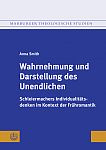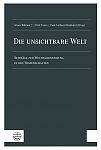Eine ökumenische Studie zur Gemeinsamen Erklärung zur Rechtfertigungslehre
Hrsg. von Walter Klaiber
Diese Studie löst ein Versprechen ein. In der Gemeinsamen Erklärung zur Rechtfertigungslehre haben sich die Partner verpflichtet, »das Studium der biblischen Grundlagen der Lehre von der Rechtfertigung fortzuführen und zu vertiefen«. Diesen Auftrag hat eine Arbeitsgruppe von zwölf lutherischen, methodistischen, reformierten und römisch-katholischen Fachleuten des Alten und Neuen Testaments und der Systematischen Theologie aufgenommen. Die von ihr erarbeitete Studie erläutert die hermeneutischen Fragen einer Berufung auf die Heilige Schrift und untersucht die exegetischen Voraussetzungen der divergierenden Urteile der Reformationszeit. Das alttestamentliche Zeugnis zu den Themen Gerechtigkeit und Rechtfertigung kommt in seiner Vielfalt zur Sprache. Im Neuen Testament richtet sich der Blick auf eine differenzierte Sicht der paulinischen Rechtfertigungstheologie, aber auch auf die Jesustradition, Matthäus, Johannes und Jakobus. Die Zusammenfassung erörtert die Fragen, die in der Diskussion um die Gemeinsame Erklärung aufgebrochen sind, und zieht Folgerungen für die Gemeinschaft der Kirchen und ihre gemeinsame Mission.
[Biblical Foundations of the Doctrine of Justification. An Ecumenical Study on the Joint Declaration on the Doctrine of Justification]
This study fulfills a commitment. In the Joint Declaration on the Doctrine of Justification the partners committed themselves »to continued and deepened study of the biblical foundations of the doctrine of justification«. A task force of 12 Lutheran, Methodist, Reformed and Roman-Catholic biblical scholars and theologians was asked to work on this project. The study document they produced expounds the hermeneutical questions which arise when we appeal to the Scripture and explores the exegetical presuppositions of the diverging opinions in the time of the Reformation. The Old Testament witness regarding justice, righteousness and justification is presented in its richness and diversity. For the New Testament a careful and nuanced analysis of Paul’s theology of justification is given, but the theology of the Jesus Tradition, Matthew, John and James are also included. The conclusion discusses the questions which were raised in connection with JDDJ and the consequences of the results of the study for the communion of the Churches and their mission together.







